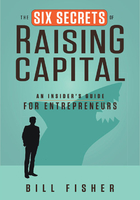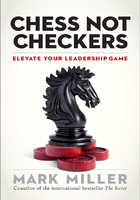What Is Ethics, Anyway?
Discussions of ethics often evoke more emotion than reason. Typically, when the subject is introduced to an audience of professionals, they display what we call "ethics aversion syndrome," which we will designate as EAS. They clench their fists, look askance, and remain silent for a moment until one of them makes a comment such as, "Let's get back to the real world"—as if ethics were not part of their world. In this chapter, we examine the reasons for EAS and why people seem so uncomfortable discussing ethics. We will also scan the history of the study of ethics to make it more familiar and less mysterious.
WHY DOES ETHICS MAKE ME NERVOUS?
Among the first reasons for EAS is the recognition that it is impossible to behave in a fully ethical manner in an ethically flawed organization. Wouldn't it create a hellish mess to be really honest and fair on personnel evaluations by calling an average worker average, a good worker good, and a bad worker bad! Can you imagine how ludicrous it would be to return voluntarily a surplus in your departmental budget? And isn't it absurd to expect public money to be treated as if it came from the public? Purification of government organizations is as likely as purification of the nation's entire food and water supply.
But despite obvious and unavoidable ethical flaws in organizations, they must have some ethical basis if they are to function effectively. If personnel evaluations were written so that no one could infer anything from them, good performances would be no more acknowledged than poor ones. The reward system would be rendered useless, and the organization would suffer. It suffers also when budgets are padded by individual departments so that funds are not allocated in the most productive manner and responsible fiscal planning is reduced to a set of turf battles. And if public funds are treated in a totally cavalier manner, the public will eventually reduce or eliminate them. Ethics, even in imperfect form, is already a part of the organization, and, like any aspect of the organization, can be improved by the efforts of committed individuals. We advocate neither ethical metamorphosis nor ethical perfection, but ethical improvement.
A second cause of EAS is the sense that ethics would add an unnecessary complication to one's job. The burden of even incremental ethical improvement would add to an already complex occupation. To labor over the ethical aspects of matters such as evaluation, funding, and maximization of service to the public might be seen as introducing a new layer of professional concern. But, far from introducing a new factor, concern for ethics is already a part of one's professional responsibilities. Ethical issues are present, at least potentially, whenever one person makes decisions that affect others. Although there are laws, regulations, and written policies that govern such decisions, no formalized rules can possibly cover all cases. Ethics is already part of the job. To simplify a job by ignoring its ethical aspects is unprofessional.
Furthermore, ignoring ethical aspects may ultimately complicate a job. Ethical principles do not exist merely to restrict and complicate one's behavior. Ethics is the culmination of human experience regarding important issues. As evidenced by the Watergate affair, application of that experience is more likely to simplify the effects of one's actions in the long term. If ethical people had prevented the Watergate burglary, the country and the Nixon administration would have avoided enormous problems. The ensuing coverup, which ethical action also would have prevented, caused even more difficulty for the nation and the government. The public official who ignores ethics is almost certain to create or contribute to problems. He or she may no longer be with the organization when they occur, but they will occur.
A third source of EAS is the complaint that "I know my job, and I don't need so-called ethics experts telling me what to do." But the point of this book is to help you to make your own ethical decisions without the need for reputed experts or anyone else. We hope to help you in learning how to think about ethics rather than what to think.
This leads us to another source of EAS: "I am an ethical person; the notion that I need to learn to be ethical is a personal insult." Indeed, most people are well-meaning and generally intend to be ethical. But some issues, especially unforeseen ones, can be very confusing and complicated from an ethical perspective. For example, when sudden layoffs are required, even when all efforts to avoid them have been explored, should the younger, less experienced but lower-salaried workers be fired, or should the older, more experienced and more expensive workers, who will have greater difficulty finding new positions, be removed? To what extent should race, ethnicity, or gender be considered in a worker's favor? Should a person's status as needing only a few months to qualify for significant retirement benefits be considered?
People with the highest ethical intents have vastly different opinions on ethical issues such as these. To have ethical intent is not enough; one must be prepared to think through the difficult cases.
But thoughts of difficult cases give rise to another fear that contributes to EAS: What can one do if, after analyzing the difficult case, one comes to a conclusion unwelcome to colleagues and supervisors? Like the prophet in his own land, the ethical public administrator can become a pariah. He or she could discover ethically questionable activity of individuals in the organization or even entrenched in the organizational culture. It is difficult and professionally risky to tell others in the workplace that they have been unethical. But if they persist in their unethical ways, the ethical thinker might, in extreme cases, be tempted to blow a whistle.
If our recommendations are followed, the whistle will not need blowing—at least not as often. Our aim is to make the organization more ethical, so that even when the occasional and inevitable ethical violation occurs, the organization will respond appropriately. But if it does not, we can only respond with the unfortunate but obvious: Sometimes one ought to blow a whistle.
Finally, there is the prospect that perhaps causes the deepest EAS-related anxiety: Perhaps one might discover one's own unethical behavior. This prospect is especially threatening to those of us who have hitherto regarded ourselves as perfect. The discovery of one's own ethical flaws is like one's first dental cavity, one's first gray hair, or the first realization that there really are some people in this world who do not care to date you. The antidote for this form of anxiety is a modicum of realistic modesty. No one is perfect. If one expects the organization to accept one's criticism, he or she ought to be willing to accept it also.
Unquestionably, ethics is very complicated at many levels. But all professionals have complicated tasks, and for the public administrator, ethical decisions are a necessary part of the job. Unfortunately, that part has been relatively neglected. Therefore, a brief scan of what history's great thinkers said on the subject of ethics would be useful.
THE GREAT HISTORICAL TRADITIONS
Nearly all ethical theories can be divided into several categories. Any such division, such as the political divisions of liberal, conservative, and moderate, may oversimplify, but may also make the subject matter easier to understand. For the moment, we are not concerned with subtleties, but with general structures, so we will examine the general categories and leave the minutiae to the scholars.
Relativism
The first class of theories, ethical relativism, is often publicly espoused by people who really do not believe it. We are not accusing these people of dishonesty. They truly think that they are ethical relativists, but they do not realize that they are not what they consider themselves to be. This peculiar state of affairs and the reasons for it will become clearer when we examine ethical relativism.
Ethical relativism is the belief that there is no single ethical standard that applies to all people at all times. The ethical relativist believes that different societies have different standards and that there is no one universal standard that applies to all. On the surface, ethical relativism is very appealing. It would seem very unfair and chauvinistic, for example, for Americans to apply their standards of morality to everyone else. It would even be unfair for one person to impose his or her standards on others in his or her own society. Suppose, for example, that James considers polygamy to be morally wrong. Should he therefore condemn Muslims and Mormons, who believe in polygamy?
There are innumerable ethical issues, such as capital punishment, abortion, and gay rights, that divide people in our society today. Wouldn't we all be happier if everyone were free to believe according to his or her own conscience? The ethical relativist seems to say that everyone should apply and be judged by his or her own standards, and therefore the ethical relativist seems to be open-minded, nonjudgmental, virtuous, and correct.
But the issue is not so simple. The ethical relativist, in stating that there is no single ethical standard that applies to all people, also removes the possibility of any universally valid reasons for the choice of an ethical standard. For example, let us imagine an ethical relativist listening to a discussion among three people on capital punishment.
Alex claims to believe in capital punishment because, in his opinion, justice requires that a person suffer the same injuries that he or she imposes on others. Therefore Alex believes in capital punishment for murder. The ethical relativist, considering Alex's position, concludes that capital punishment is right for Alex, though not necessarily right for anyone else. Bertha thinks differently from Alex. She thinks that capital punishment is wrong because human life is sacred and should never be taken for any reason. As in the case of Alex, the ethical relativist concludes that capital punishment is wrong for Bertha but not necessarily wrong for anyone else. Cletis then offers his opinion. Cletis judges all moral issues by throwing dice. If the dice roll an even number, he is for capital punishment, but if the number is odd, he is against capital punishment. The dice comes up even, so he is for capital punishment, at least until he throws the dice again. He used this procedure when he was on a jury that sentenced the defendant to death. The ethical relativist must say the same thing about Cletis that he said about Alex and Bertha: Cletis's coin flip is just as valid as Alex's reliance on retributive justice and Bertha's belief in the sanctity of human life. The coin flip is right for Cletis, though not necessarily right for anyone else.
But, one might protest that there is nothing morally relevant about a coin flip. At least Alex and Bertha base their conclusions on morally relevant factors. However, the relativist will ignore the protest because it applies an allegedly universal ethical standard. The protester argues that it is universally true that a coin flip is an inadequate reason for an ethical decision, but the relativist allows no universal standards.
Darla now enters the conversation with her own unusual ethical approach. She points out that many people base their ethical decisions on role models, such as Muhammad, Buddha, or Jesus. Functioning as her own role model, she chooses her own behavior as her standard. She stipulates that whatever she does is right because her own behavior constitutes her standard. Consequently, she proudly proclaims her own perfection. The ethical relativist duly congratulates her because he recognizes her own moral opinion as the only standard that can apply to her.
It would be difficult to imagine a society built on relativism. One person would pay taxes as a moral duty; another would be equally morally justified in refusing to pay taxes because he considers them optional. A third considers it her moral duty not to pay taxes at all. Two people conspire to murder a third, but the two murderers are not equally responsible. One is morally reprehensible because he considers murder to be morally wrong, but the other is blameless because she sees nothing wrong with murder. The society might be seen to agree on only one statement: No one should impose his or her moral beliefs on others.
But if the society is truly relativistic, its members could not agree even to that statement because of the occurrence of the word "should." The statement, "No one should impose his or her moral beliefs on others," is itself an absolute moral statement. To be consistent in one's relativism, one would refuse to apply any moral terms or moral concepts, including admonitions against imposing moral judgments.
One can now see why we claimed that many people who claim to be ethical relativists really are not. Although many people will superficially maintain that there is no single true ethical standard, few people, if any, refuse to make any moral judgments. If such people exist, they would deny that mother Teresa was better or worse than Adolf Hitler, that the Red Cross was better or worse than the Soviet KGB, or that a society of equally free citizens was better or worse than a slave state. As easy as it is to proclaim ethical relativism, it is much more difficult to be a relativist. Most people who claim to be relativists are unaware of the problem.
But those who reject relativism in favor of the belief in a universal ethical standard also have a problem. They must answer the questions "What is the correct standard?" and "How do we know that it is correct?" Those are the most difficult questions for ethical absolutists, who, unlike the ethical relativists, believe that there is a universal ethical standard. Ethical absolutism can be divided into four subgroups: teleological theories; deontological theories; intuitionist theories; and virtue theories. We now will examine the differences and similarities among those subgroups.
Teleology
We all want to be happy. We also want those whom we love to be happy. We would want everyone to be happy if it were possible for them all to be so. Such desires for happiness for ourselves and others are the bases for utilitarianism, the theory that happiness is the good and that we ought to do whatever is necessary to promote the greatest happiness. Utilitarianism is the predominant teleological ethical theory, which is the group of ethical theories that justify the morality of an action on the basis of its consequences. Teleological theories let "the end justify the means," and utilitarianism is teleological because it considers happiness to be the end that always ought to be produced. (Mill 1979)
The centrality of happiness as a value is clearly evident in the professional life of the public administrator. The aim of public organizations such as those concerned with health, education, safety, and poverty is to make the lives of people happier. The notion of happiness as justification for public action is included in the statement in the Declaration of Independence, in which the pursuit of happiness is described as an "inalienable right." George Frederickson (1997) has strong evidence for his claim that public administration, at the level of service providers, is relentlessly teleological.
Nor should we overlook the importance of the happiness of the public administrator. The profession would not be attractive to capable, productive people if they could not find happiness in it. That happiness would come from remuneration, good working conditions, and, perhaps most importantly, the satisfaction of providing happiness for others. In the ideal condition, the work of the public administrator would unite his or her own happiness with that of the people that the organization is intended to serve.
Utilitarian philosophers such as Jeremy Bentham (1970) and Mill (1979) would envision an ideal world in which the happiness of all people is unified so completely that the activities that make any individual happy would also promote the happiness of all. However, the world is not ideal, and there are many conflicts. A corporation's management, its labor force, its customers, and its investors all have different interests that may converge but will often conflict. So also will the interests of the managers of a public organization, its service providers, those to whom it provides services, its funding sources, and individual members of the organization. How can one find a balance among all of these conflicting considerations?
The utilitarian can only give a broad answer to the question: When the happiness of all members of a group cannot be fully provided, promote the greatest total happiness. Although that suggestion may seem satisfactory, it provides only a general approach but no clear method of assessing happiness to determine what constitutes the greatest happiness.
Suppose, for example, that within one society, the happiness of poor people depends upon social programs, the happiness of many of the more numerous wealthy and middle class people would be increased if taxes are lowered, but the happiness of other wealthy and middle class people who work for government agencies would be improved with higher social spending and thus greater taxation. But even this three-way conflict is greatly oversimplified. In any existing society, the conflicts would be greater and more complex. For example, there may be some altruistic people among the middle class or wealthy who would be made happier if the poverty of others were removed. There may be also some among the needy who would rather not make use of social programs. It is easy enough to claim that conflicts should be resolved by promoting the greatest total happiness, but it is often virtually impossible to determine what constitutes that happiness.
The problem is exacerbated by the vagueness in the notion of happiness. Mill (1979) found it necessary to introduce the concept of quality in happiness because he recognized that more happiness is not necessarily better happiness. The life of a carefree "satisfied fool" may be more enjoyable and less painful than that of a "dissatisfied Socrates," whose wisdom produces enormous burdens and pains, including the commitment to principles that leads him to condemnation and execution. To avoid concluding that the life of a satisfied fool is better than the life of the dissatisfied Socrates, Mill argues that the lesser quantity of the happiness of the dissatisfied Socrates is outweighed by its greater quality. But Mill provides neither any clear definition of happiness nor any means of measuring the quality of one happiness against the quality or quantity of another. How, then, are we to measure the quality of the happiness of the altruistic people who wish to remove poverty, against the quantity of happiness of those who wish to keep their money to finance material possessions and promote their financial security?
The number and nature of seemingly irresolvable conflicts is overwhelming. They occur on matters concerning public support of, among other matters, the environment, education, the arts, and social security. Utilitarianism provides little wisdom by recommending solutions that may be theoretically sound but practically useless.
But even the theoretical soundness of utilitarianism has been questioned. Some theorists, such as Immanuel Kant (1959), have argued that there are cases in which happiness should be sacrificed for higher values. For example, let us suppose that there is legislation before Congress that would promote the greatest happiness—however happiness may be measured—at the expense of the poorest members of the society. The legislation would lower the taxes of all citizens who pay taxes but will remove a subsidy on housing for those who cannot afford it. Is the happiness of the whole more important than providing a minimal existence for the poor? Do individuals not have rights that should be honored even at a cost to society in general?
Other cases are equally troublesome. Administrators of public agencies may be tempted to misrepresent facts to secure increased funding. Those administrators may privately defend their actions by pointing out, perhaps accurately, that those who make funding decisions are not knowledgeable enough to properly understand the actual facts, so they must be presented with misleading information, for the ultimate public good. Should the good end justify such questionable means?
Similar cases are very familiar to those who work in public agencies. Managers often discover departmental "needs" at the end of a funding cycle to justify spending surplus funds and, thus, to avoid cutbacks in the next cycle. In evaluation of personnel, terms such as "excellent" and "superior" are often used with little concern for their conventional meanings. The benefits of attendance at distant conferences, however worthy, are often exaggerated to ensure that the uninformed funding sources will not err on the side of frugality. Are such distortions ethical? Most people would at least question them, but for the utilitarian, there is no question: Promoting the greatest happiness is more important than any other principles.
Deontology
In contrast to the utilitarian, teleological position, we often find ourselves saying, "It's the principle of the thing." There is something in us that says that we should not only produce the right results, but we must do things in a principled way. That is the position of the deontological theorist. A deontological ethical theory is one which maintains that the ethics of an action does not depend upon the consequences, but upon an important feature of the act itself. For most deontological theories, that feature is the obedience of an action to a principle. Kant is the most notable deontological influence on contemporary ethics and perhaps the most important deontologist in all of human history. His stature is so significant that his theory is designated by his own name, "Kantianism."
According to Kant (1959), the most important aspect of any principle, whether in mathematics, physics, or any other field, including ethics, is consistency. Human beings are naturally rational, and they reject contradictions. Human beings therefore cannot believe in square circles, immovable objects that meet irresistible forces, and applying rules to others that you refuse to apply to yourself. To Kant, the golden rule, "Do unto others as you would have them do unto you," is a common sense expression of this concept of consistency.
While favoring the intent of the golden rule, Kant realized that its wording could be abused. For example, if I am a vegetarian, I might do unto others as I would have them do unto me by favoring a law that would prohibit the sale and consumption of meat. On the other hand, a cattle rancher may favor a law that prohibits the sale of all meat other than beef. In both of those cases, people apply the golden rule for selfish purposes. The intent of the golden rule is not egocentric, but its wording allows selfish manipulation.
Kant claims that we all recognize that we must be consistent, but there is no foolproof way of formulating consistency in a way that infallibly describes moral action. His first formulation of his "categorical imperative," which means "absolute moral command," was "I should never act in such a way that I could not also will that my maxim should become a universal law" (18). For example, one could not will lying to be a universal law without contradiction. If we all acted according to the rule "You must always lie," a conflict would result. In many cases, we could lie successfully, even if everyone expected us to do so because they anticipated that we would be following this rule.
If someone asked where we live, we could give false information that would impart nothing. If someone asked our age, we could again lie successfully. But if someone asked a question, such as "Do you have a living parent?" for which there are only two alternatives, no lie would be possible. A lie is a false statement that, unlike a statement in a drama or a joke, is intended to deceive. To make a false statement in this case would not be a lie because everyone, anticipating that a falsehood is forthcoming, would infer the truth. On the other hand, a true statement intended to deceive would not be a lie because such a statement would not be false.
Kant's objection to lying is different from that of the utilitarian, whose primary concern is promoting happiness. For Kant, lying is not bad merely because it usually—though not always—fails to support happiness. Kant rejects lying because of the logical contradiction in making a rule that one must lie all the time. That contradiction is evident in the statement, "This statement is a lie." If the statement is true, it is also false; if it is false, it is also true.
One could not make a consistent universal law of "Stealing is morally acceptable" either. If stealing is acceptable, property rights would no longer exist, so there would no longer be any stealing. The rule would thus defeat itself. Similarly, the rule, "It is acceptable to make a false promise," would contradict itself. A promise is, by definition, an obligation, but a false promise, which does not obligate, would not be a promise to begin with.
To be consistent requires not only that one obey consistent laws but also that one apply laws consistently. A rule such as "Everyone except me should be considerate" would offend not only our sense of common courtesy but also our sense of logic. One would ask, "If everyone else should be considerate, why, logically, should you not also?" Therefore Kant says that one should not only obey a universal law, but also follow a law that one could will to be universal. One could not will a rule to be universal if one were to make an exception for himself.
But despite Kant's attempt to improve on the golden rule, his first formulation of the categorical imperative has similar problems. One could still will an egocentric law, such as the cattleman's "Everyone should eat at least one pound of beef a day" to be universal. Kant realizes that problem, so he offers a second way of formulating the notion of consistency. To understand this second formulation, we must begin by acknowledging the slight that we all feel when we realize that we have been manipulated. We take offense when we discover that someone, be it a telemarketer, a teacher, or a parent, has used us. As human beings, we resent being treated as inanimate objects or material commodities. Such treatment denies our humanity. But if we consider such abuse to be an unacceptable degradation, consistency requires that we avoid treating others in an equally manipulative manner.
Kant therefore states his second formulation of the categorical imperative as, "Act so that you treat humanity [i.e., rational beings], whether in your own person or that of another, as an end and never as a means only" (47). The value of a rational human being is intrinsic, so human beings should not be used as if they were instruments for some ulterior purpose.
There are two especially noteworthy points concerning the second formulation. First, it presents a point of contact between Kant and the utilitarian concern for happiness. To treat someone as an end in himself or herself entails taking that person's happiness fully into consideration, as a utilitarian would. Secondly, to treat people as ends in themselves rather than as instruments of another person's will requires that one treat people as free, responsible agents. If I were to treat someone merely as a means to my own ends, I would be depriving that person of the freedom to pursue his or her own ends.
Kant's second formulation has much appeal. No one likes to be used. We all recognize that the birth and death of a human being is of a different order from the creation or destruction of an automobile, a building, or an insurance company. People are important because they are people. Administrators in public service realize that the people they serve are not means to the administrator's employment, but people who are to be served because of their own inherent value.
Nevertheless, Kant's second formulation is not without problems. It is not always clear when we are treating people as a means, and, sometimes, treating one person as an end in himself or herself may require treating another as a means. For example, taxing one group of people for the welfare of others appears to be a case of using the first group as a means. Would Kantianism therefore prohibit all taxation that helps one group at the expense of another? One might reply that such taxation is needed to treat the beneficiary as an end, yet the person who bears the burden of taxation is still a means.
Kant realized that there were deficiencies in his second formulation, as in his first. He therefore attempted to formulate a third statement to cover problematic cases, though it, too, like all human creations, is imperfect. The third formulation is not as clearly stated as the first two but it attempts to capture the notion of a society entirely consistent within itself. The third formulation may best be stated as, "Consider all of your acts as if they were laws in a realm of ends," with a "realm of ends" understood as a society in which all ends unite into a coherent whole. The notion of the realm of ends captures the idea of consistency because it is a society in which all people's ends are consistent with all others. The realm also captures the notion of people as ends in themselves because, since the aim of such a realm is to render each person's ends consistent with all others, each person's ends, and therefore each person, are treated as inherently valuable. The general thrust of the third formulation is to suggest that we all attempt to produce and perpetuate an ideal society.
The third formulation seems to overcome the aforementioned problem concerning taxation. If one is attempting to create a realm of ends, taxing one group in a manner that is not overly oppressive to provide others with the basics of life may be in order. Indeed, if the people who bear the burden of taxation think of themselves as acting in a realm of ends, they would probably willingly contribute.
Nevertheless, even the third formulation has its weaknesses. It provides us with the image of an ideal to guide our actions, but ideals are notoriously ambiguous when applied to practical cases. The image of an ideal provides little guidance concerning moral problems such as capital punishment, abortion, or war. In the ideal world, such things would not exist, but they do exist in our world. The image of an ideal tells us where we want to go but it does not tell us how to get there.
Rather than look to Kant's categorical imperative or any of its formulations as a formulaic solution to all ethical problems, it is perhaps best to consider his idea of rational consistency as a theoretical foundation for ethics and to consider his formulations as guidelines to assist in our moral thinking. Both the general notion of consistency and the formulations must be interpreted when applied to specific cases. There will be many cases of ambiguous interpretation, but they do not suggest that we abandon the general Kantian concepts. The Constitution of the United States admits of great ambiguity of interpretation, but its flexibility may be understood as a strength rather than a weakness. Perhaps it is best that we ask Kant or any other ethical theorist to provide us not with a formula, but with a general understanding—to tell us how to think about ethics rather than what to think.
Intuitionism
In examining the theories of utiltiarianism and Kantianism, we relied heavily on our basic, gut-level moral feelings. If a theory coincides with those feelings, we tend to agree with it, and if a theory offends our moral sensitivities, we tend to reject it. We may even consider those feelings to be more important than logic. If a theory seemed perfectly logical but concluded that Hitler's behavior was better than Mother Teresa's, we would reject the theory and perhaps even logic itself. But if we use a moral sensitivity to evaluate ethical theories, why not consult it as the ultimate source of moral evaluation? Such is the thinking of the intuitionist.
Intuitionism is the belief that human beings have a moral sense that recognizes the moral character of an act. G. E. Moore (1976), the best-known modern intuitionist, compares the moral sense to color perception. We know that an object is yellow when we see it. We do not reach the conclusion that the banana on the grocery table is yellow by means of abstract argumentation or reasoning; we merely see that it is yellow. Similarly, our moral sense, and not some esoteric theory, tells us that helping people is better than torturing them in concentration camps.
The intuitionist appears to be on firm ground in claiming that moral judgments depend upon feeling more than upon theories and arguments. If theories and arguments were the source of ethics, then the best theorists and arguers among us would be the most moral. The opposite is just as likely true.
Yet intuitionism is problematic. The intuitionist tells us, on the basis of a moral sense, that some actions are ethical and some are not. However, there are controversial ethical issues on which people's moral senses differ. One would hope that a moral theory would help in these difficult cases, but the intuitionist provides no way to decide among the different intuitions. Furthermore, the intuitionist would not allow rational argument to decide among intuitions; if rational argument decided among conflicting intuitions, then reason, rather than intuition, would be the ultimate source of ethics. The intuitionist appears to be correct in asserting an important role for the moral sense in ethics, but the intuitionist appears to be mistaken in claiming that the moral sense is the only or the ultimate ethical source.
Virtue Theory
The fourth major group of ethical beliefs, strongly associated with the ancient philosopher Aristotle (1980) and the modern philosopher Alasdair MacIntyre (1981), is called virtue theory. As the name suggests, virtue theory considers an act to be good on the basis of the character trait or virtue that the act evidences. For example, saving a child from a burning building is a good act because it evidences courage, giving money to the poor evidences generosity, and returning an overpayment from a bank teller evidences honesty. Unethical actions, such as cheating on income taxes or always letting someone else pick up the restaurant tab, evidence poor character traits.
Virtue theory emphasizes the importance of the whole person in ethical evaluation rather than the details of action. But, like the other theories, virtue theory has questionable aspects. One may ask the virtue theorist why certain traits, such as honesty and generosity, are good while other traits, such as cowardice and selfishness, are bad. At first, such questions may seem easy to answer, but the answers may suggest an incompleteness in virtue theory. For example, it may seem obvious that honesty is good because it is important for maintaining a cohesive, trusting civil society. But that answer would suggest that the ultimate reason that a virtue is good is really a teleological one. Honesty is not just good in itself, but it is good because of its promotion of a happy society. The virtues that the virtue theorist extols are not good for arbitrary reasons. But to answer the question "Why are these virtues good?" leads beyond virtue theory itself to some other foundation.
COMBINING THE GREAT HISTORICAL TRADITIONS INTO A UNIFIED PROCESS
Consideration of these theories can be confusing. They all differ, but they all seem strong in some respects while wanting in others. Deciding among them may be great fun for academicians, but we have the more pressing task of discovering among the theories something that can help us in making ethical decisions. Perhaps rather than choose among them, we should acknowledge that each has valuable insights that we can use.
We may compare the differing ethical theorists to the proverbial group of blind people each trying, from a different standpoint, to discover the nature of an elephant. Each sees a different part, but the whole might be better understood if all the parts were combined into an overall description. Even then, the understanding of the whole may be incomplete but would, nevertheless, be much better than that of one standpoint, e.g., teleology or deontology, or no standpoint at all, e.g., relativism.
In combining the different ethical standpoints, we may compile the questions that each theory would ask. In preparing for such a compilation, a brief comparison of the theories on the basis of their main points, as represented in the list below, may be helpful.
Teleology: Act in order to produce the greatest happiness as a consequence.
Deontology: Act according to the proper principle, and be consistent in applying it.
Intuitionism: Act according to your inner sense of what is right or wrong.
Virtue theory: Act as a person of good character, and set a good moral example for others to follow.
This list enables us to construct another that compares the questions that each theory, as we have previously discussed it, would have us ask.
Teleology:
What are the consequences of my action?
What are the long-term effects of my action?
Does my action promote the greatest happiness?
Deontology:
What principle applies in this case?
Can this principle be applied consistently in this case and in all similar cases?
Can this principle be considered as a possible universal principle of behavior?
Which course of action best exemplifies the ideal of treating all people as ends in themselves?
Which course of action best exemplifies and most fully promotes the ideal of a society of free, responsible people whose ends promote each other rather than conflict with each other?
Intuitionism:
What does my conscience tell me about this action?
Do I feel good about this action?
Virtue theory:
What character traits does this action express?
What effect will this action have on my character?
What effect will this action have on the character of other people?
Is this the action of a person whose character I would admire?
The list of questions is not intended to be complete but forms a strong foundation for moral decision making. Additional factors may include one's ethnic, cultural, and religious values, and the ethical codes of one's profession.
Moral decision making would be easy if the answers to all of the questions led, in all instances, to the same conclusion. For example, let us consider the question, "Should I lie on my income tax return to save myself thousands of dollars?" Although the lie may make me happy in the short run, the tax system is devised to promote the greatest social happiness. To cheat would therefore, in all likelihood, produce negative answers to the teleological questions "What are the consequences of my action?" What are its long-term effects? Does my action promote the greatest happiness?
The deontological questions would also refute cheating on the tax form. When one asks, "What principle applies in this case?" the answers may include, "One should be honest," "The society must collect taxes in order to exist," and "All must pay their fair share." The policy "I lie in order to place my interests above the general public" is not a moral principle. With respect to the second and third questions, "Can this principle be applied consistently in this case and in all similar cases?" and "Can this principle be considered a possible universal principle of behavior?" the tax cheater's policy would fail on both counts. If everyone were permitted to cheat on taxes, there would be no tax system on which to cheat. The cheater would also fail the test of "Which course of action best exemplifies the ideal of treating all people as ends in themselves?" because the cheater is using the honest taxpayers to pay his or her share. And it is obvious that cheating is not the course of action that "best exemplifies and most fully promotes the ideal of a society of free, responsible people whose ends promote each other rather than conflict with each other." The cheater is setting up his own financial interest in contrast to the interests of the other members of the society.
Answers to the intuitionist's and virtue theorist's questions align with those of the teleologist and deontologist. Only in perverse cases would someone feel good about lying on income taxes or suggest that such behavior exemplifies good character.
It would be unrealistic to suppose that all cases would be so simple. There are many instances in which the answers to all of the above questions will not, at least initially, imply the same course of action. There is no foolproof formula for deciding such cases, but there is a general process to apply to them. The first aspect of that process is to determine if the apparent conflict can be reconciled. In many cases, reconciliation is possible when the questions are examined in depth. Let us suppose, for example, that, in attempting to garner public support for a project, a public agency is tempted to overstate its benefits and understate its likely costs. The rationale for this deception includes the familiar refrains: It is a good project whose benefits the public cannot understand; when the project succeeds, everyone will forget our initial assessment; every agency is deceptive, so we must be deceptive in order to compete.
The deception, however, appears to present a conflict among the ethical factors in our list of questions. The teleological considerations appear to favor the deception on the basis of its consequences, but the deontological considerations seem to favor a more honest approach on the basis of the principle that one always ought to tell the truth.
In this case, reconciliation of teleology and deontology is possible. The teleological considerations, which seem to favor the deception, might oppose it when the consequences are examined more closely. Even if the deception is temporarily successful, it is likely to be discovered eventually, and, as happy as the society may be with the results, it will tend to distrust the agency's word in the future. When considered together with the common deception of other agencies, the society will find ample evidence to distrust government in general, and the consequences of that distrust are certain to be harmful. Yet even if the deception is never discovered, the consequences may be negative. The need to perpetuate the deception throughout the agency is likely to cause its members stress and distrust. Furthermore, a successful deception, like a successful day at the race track, is likely to encourage future similar activities with less fortunate results. For the teleologist, honesty is still, in the long run, the best policy.
The possibility of a unification of the ethical standpoints may lie in human nature itself. The considerations of the teleologist, deontologist, intuitionist, and virtue theorist are all natural to human beings. As the teleologist suggests, they value happiness in themselves and in others. But they are also rational beings with a respect for rules, as the deontologist asserts. People, furthermore, have a moral sense evident not only in their seemingly intuitive ethical judgments, but also in conscience and feelings of guilt. People also admire human virtues and disrespect vices, as the virtue theorist argues. As the authors have maintained in another work, it is unlikely that those aspects of a human being would exist in conflicting, disunified form (Garofalo and Geuras 1999):
Humanity could not have evolved so successfully over thousands of years if all of those aspects were independent. The physical parts of a human being have evolved to work together in mutual dependence. Human beings would be strange evolution-defying natural enigmas if their inherent mental functions were naturally in conflict rather than in unity. Human reasoning, love of happiness, benevolence, respect for moral character, and intuitive reactions are almost certainly parts of a unified, evolved human nature. If so, deontology, teleology, character theory, and intuitionism must be in a unified harmony. (125)
Nevertheless, there may still be cases in which the different aspects of ethics may seem in inescapable conflict. Pontius Pilate was faced with a choice between justly freeing an innocent person and preventing a revolt. Whether one agrees with his action or not, one must sympathize with his dilemma. In a less dramatic but more common case, a manager may be faced with the option of firing, for the sake of productivity, older, loyal employees, who are more expensive, in order to hire younger, cheaper ones. The manager must choose between treating people as a means or sacrificing the best interests of the organization and those whom it serves.
Conflicts can occur not only between ethical standpoints but also within them. The deontologist may be faced with a conflict between principles. Public administrators as well as private citizens in Nazi Germany were often forced to choose between the principle that one ought always to tell the truth and the principle that innocent people should not be murdered, even if one must lie to protect them from a beastly government. The more civilized world of the contemporary United States is not immune to conflicts of principle, though they may be less dramatic. In hiring, one must often balance the conflicting principles of equality with the principle that historically abused or deprived groups should be favored over slightly better qualified, advantaged groups.
We will consider such cases of conflict more fully in later chapters, but, for now, it is sufficient to recognize that they exist. Unfortunately, there is no formula to resolve them. One must consider the issues implicit in our list of ethical questions and reach some reasonable balance among them. Since Kant's ideal realm of ends does not currently exist, it is impossible to always find a clear solution to every moral dilemma. One must use judgment. Justices on the United States Supreme Court must use their best judgment in applying the ideals of the Constitution when those ideals are in apparent conflict. Similarly, the moral actor must use judgment to best interpret and apply varied moral ideals.
The judgment need not be made in isolation. Ethical issues involve an entire organization, and should be discussed among colleagues. The advantages of such discussions are obvious: They provide the benefit of the opinions of others; they emphasize the importance of group participation in decision making; and they increase awareness of ethical concerns. Organizations may attempt to formalize the process of ethical discussion in numerous ways. An ethics committee may be appointed. The entire organization or divisions within it may convene periodically to discuss ethical issues. An ethics officer may be available for consultation. In addition to such formal structures, discussions with trusted colleagues are invaluable. Dialogue on ethics must be part of the entire culture of an organization.
But even after an ethical matter has been fully discussed, its ambiguity may still remain. The decision maker must take all opinions into account, but must reach his or her own judgment. Those who bear the responsibility for the judgment may often disagree with the majority of their colleagues, no matter how enlightened they may be. Likewise, members of a group who disagree with the final decision must acknowledge that, while their opinions must be taken into consideration, they must accept contrary but seriously considered conclusions, even on matters as vital as ethics. In keeping with the Kantian notion of people as ends in themselves, one must accord the ultimate decision maker with the right to make his or her own judgments, so long as they are reached in an honest, well-intended manner.
The absence of any formulaic solution to moral dilemmas does not preclude the attainment of reasonable solutions. If one answers all of the questions on the ethics list, conscientiously attempts to reconcile them, and uses one's best judgment when they cannot be reconciled, one still has no absolute guarantee that he or she will find the most ethical solution. But even if one does not reach the ideal ethical conclusion, one would have reached it in the best possible way. If a mistake is made, it will be the result not of one's ethical intent or diligence, but of the difficulty of the issue at hand.
The aim of ethical decision making is not the impossible goal of always performing the finest action but of always deciding in the most ethical manner. If decision makers use the process that we have outlined, their ethics cannot be faulted even if their decisions ultimately prove wrong. One of the stated aims of this chapter was to combat EAS (ethics aversion syndrome). We cannot do so by promising that all ethical decisions will be carefree or easy. However, a major step toward overcoming EAS is taken when one realizes that, no matter how intractable an ethical problem may be, it can be managed properly, even if not perfectly.
TAKING YOUR ETHICAL TEMPERATURE
Before proceeding, it would be advisable to examine where you are ethically within your profession. We now ask you to consider the questions below for your own analysis. They are for your benefit, and there are no prescribed right or wrong answers. The questions are intended only to stimulate thought.
How many of the ethical questions on our list do your regularly ask in your professional activities?
Do you have occasion to ask them?
Do you favor teleology, deontology, intuitionism, or virtue theory? Do you use them in combination with each other?
Do you think about ethics more often outside of work than at work? If so, why?
Does your organization have a formal structure for discussing ethical issues?
Does the organizational culture at your workplace encourage consideration of the ethical aspect of issues?
If the answers to questions 5 or 6 were negative, is there anything that you can do to increase concern for ethics in your division or department?
Does ethics in your workplace consist primarily of legalistic compliance with ethics codes?
What are the most important professional ethical issues that arise in your work environment?
Do you believe that ethics has greater significance in the public service than in private industry?
As a thought exercise, let us consider the following case in which a manager must make an ethical decision. As with the above questions, there is no prescribed correct or incorrect analysis; the case is offered only for your consideration.1
Ansel, a retired resident in an apartment building, has not been receiving social security checks because, according to the records of the Social Security Administration, he is dead. He has tried repeatedly to inform the social security office that he is still alive, but because of miscommunication, paperwork errors, and delays, he has been unsuccessful. Fortunately, he has a neighbor, Frieda, who works in the social security office. Ansel asks Frieda to intervene for him, and she does so willingly. As a result of Frieda's efforts, the Social Security Administration learns that Ansel is alive, pays him all that he is due, and begins sending the monthly checks. All is now well for Ansel.
But all is not well for Frieda. To her astonishment, her supervisor informs her that she is to be suspended while a committee considers possible punishment. She has broken administrative rules intended to prevent influence peddling. The rules state clearly that no employee should assist any private citizen who attempts to communicate with the Social Security Administration. Her assistance to Ansel was such assistance, so she may be disciplined or even fired for an ethics violation.
Consider the following questions:
Did Frieda do anything unethical?
Is there good reason to punish her?
If you were a member of the disciplinary committee, what response would you consider to be appropriate in this case?
This chapter demonstrates that ethical thinking is not easy. It forces us to examine concepts that have challenged history's greatest intellects. In thinking ethically, we may complicate our jobs by introducing concepts that hitherto we have ignored. The ethical professional may ask questions that irritate coworkers and supervisors. Worse yet, those questions may have no clear answers. We may wish to avoid ethical matters because they present such difficulty. But to avoid them would be like solving a technical problem by taking a coffee break to help one forget the issue. The problems exist, and one must respond to them.
The most honest remedy for ethics aversion syndrome is not the coffee break or the wishful belief that ethics is easy, but the recognition that ethics is difficult. When one recognizes that a task is impossibly challenging, one realizes that success is measured by the quality of one's efforts rather than the discovery of an ultimate solution. In this chapter, we have discussed the general form that those efforts should take. In succeeding chapters, we will explore them in more detail.
1This example was suggested by Stuart Gillman at the 1995 Symposium on Ethics and Values in the Public Administration Academy, Tampa, Florida.













